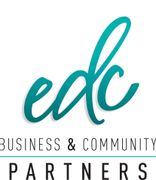5 Common Requirements of Small Business Loans

For many start-ups and smaller companies struggling with funding, a small business loan is sometimes the key to growth. It provides the capital needed to expand production, fund operations, and keep employees paid. If a business loan could be of value to your company, the information below should help you decide if you qualify.
5 Requirements for a Typical Small Business Loan
1. The Organization Must Be "For Profit"
Your business must be a for-profit enterprise rather than a charitable or philanthropic organization. Although non-profits are essential to the health of the nation, small business loans are designed to encourage commercial endeavors. Such businesses create new—or improve existing—products and services and generally foster prosperity. Non-profits have other avenues for funding.
2. In Business or Not In Business? This is the Question.
Most lenders want to see a record of at least moderate success before they invest in your business. This will require you to have been operational for three years with financial statements or tax returns for proof. Even with this, the lender will also ask you for a business plan and projections. A lender may fund your start up if you have additional income and as much as 25% to put into the project. Startups may have better luck applying with an “angel investor” or with organizations that specialize in micro small businesses loans.
3. You Must Use Funds for a Particular Purpose
 Lenders will want to know exactly how you will spend the loan proceeds. In fact, depending on the type of loan, you may have to use the money for a particular purpose. Common loan types include equipment loans, which lets you purchase equipment that subsequently serves as collateral, and invoice financing, in which you use unpaid invoices as collateral. The repayment plan on the former normally lasts for the expected life of the equipment, while the latter provides quick cash using the money people owe you as a guarantee.
Lenders will want to know exactly how you will spend the loan proceeds. In fact, depending on the type of loan, you may have to use the money for a particular purpose. Common loan types include equipment loans, which lets you purchase equipment that subsequently serves as collateral, and invoice financing, in which you use unpaid invoices as collateral. The repayment plan on the former normally lasts for the expected life of the equipment, while the latter provides quick cash using the money people owe you as a guarantee.
4. You Must Have an Acceptable Credit Score
Before approving a small business loan, many lenders check the business owner's personal credit score. Therefore, how you tend your personal finances could have a considerable impact on how readily your business receives funding. Personal credit scores range from 300 (the lowest) to 850. To qualify for a small business loan, you normally need a credit score of about 550.
5. You Might Need Collateral
Secured business loans require some kind of collateral to ensure repayment. For instance, you might need to put up equipment, real property, or even inventory in the amount of the loan to secure financing. Note that, because hard assets are more difficult to liquidate, your lender may discount the value, so you need to put up an even larger amount.
To see if you qualify for a small business loan, contact EDC Business & Community Partners in St. Charles, MO. They have been mentoring companies throughout Greater St. Louis for more than 25 years and specialize in business consulting, warehouse and office space rental, and entrepreneur education. Visit their website to connect with them online or call (636) 229-5277 to discuss your next steps to securing a business loan.
About the Business
Have a question? Ask the experts!
Send your question

